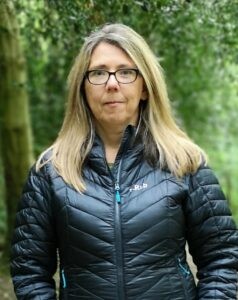Health and Safety Executive (HSE) principal scientist Dr. Jackie
Morton has received The Royal Society of Chemistry Exceptional
Service Award.
Dr Morton, based at HSE's Science and Research Centre in Buxton,
is part of a biological monitoring team whose work involves
determining workplace exposures to chemicals. Her area of expertise
includes the analyses of toxic elements (such as lead) in
biological samples.

She was nominated for the award for her ongoing voluntary
commitment to the Royal Society of Chemistry (RSC) Sheffield and
District Local Section; and, the RSC Atomic Spectroscopy Group.
Dr Morton is the programme secretary of RSC Sheffield and
District Local Section and organises a variety of chemistry themed
public events during the year including lectures, school and pub
quizzes and school visits. This included a street event in Buxton
earlier this year where school children were invited to visit
booths and take part in hands on science experiments.
Dr Morton also acts as treasurer for the RSC Atomic Spectroscopy
Group a national group of scientists and academics who share
information and knowledge to collaborate in the pursuit of science.
As part of this group Dr Morton supports younger scientists working
in the Atomic Spectroscopy field and helps to organise a biennial
conference to bring together national and international
researchers.
She was nominated by colleagues from her team at HSE for an
outstanding contribution to proactively and inclusively supporting
colleagues and the wider scientific community.
After receiving the award, Dr Morton said:
"I am honoured to be nominated for this award; my colleagues are
very kind.
"I feel that promoting chemistry, locally in Sheffield and
nationally in the atomic spectrometry world is important and
worthwhile. If one child has been inspired to follow a scientific
path, then that is reward enough. The volunteering that I do is
always as part of a dedicated team and I thank them all."
Professor Andrew Curran, HSE's Chief Scientific Adviser,
said:
"We are proud of Dr Morton's lifelong efforts to further the
advancement of science.
"She is a valued member of the team whose innovative work is
helping to keep employees safe, while her voluntary activities are
contributing to new developments through collaboration and
inspiring the next generation of scientists.
"As a regulator we value having colleagues who are dedicated to
their industry and community and Dr Morton is clearly a fantastic
ambassador of science."
Dr Helen Pain, acting chief executive of the Royal Society of
Chemistry said:
"We live in an era of tremendous global challenges, with the
need for science recognised now more so than ever. It's incredibly
important to recognise those who are making significant
contributions behind the scenes towards improving the world we live
in as well as inspiring colleagues within the chemical sciences
community to do what they can for the people around them.
"This award is about celebrating the efforts of the unsung
heroes who go above and beyond to support their colleagues and our
wider community. It is for this reason we are proud to be
presenting this award to Dr Morton, for her outstanding service to
the Royal Society of Chemistry through the activities of the
Sheffield and District Local Section and the Atomic Spectroscopy
Group."
The Royal Society of Chemistry's Exceptional Service Award
recognises and celebrates those members who have made a positive
impact by contributing through a variety of volunteer positions or
over a sustained period of time.
As well as being named winner of the award, Dr Morton also
receives a medal.
For further information, see rsc.li/prizes-awards
Of those to have won a Royal Society of Chemistry Award, an
illustrious list of 50 have gone on to win Nobel Prizes for their
pioneering work, including 2016 Nobel laureates Jean-Pierre
Sauvage, Fraser Stoddart and Ben Feringa.
Last year, the Royal Society of Chemistry announced it is
reviewing its recognition mechanisms. Details of how the awards
structure will be changed - to ensure that the way excellence is
recognised is fit for today's needs - will be announced later this
year.
Issued by Weber Shandwick on behalf of the Royal Society
of Chemistry